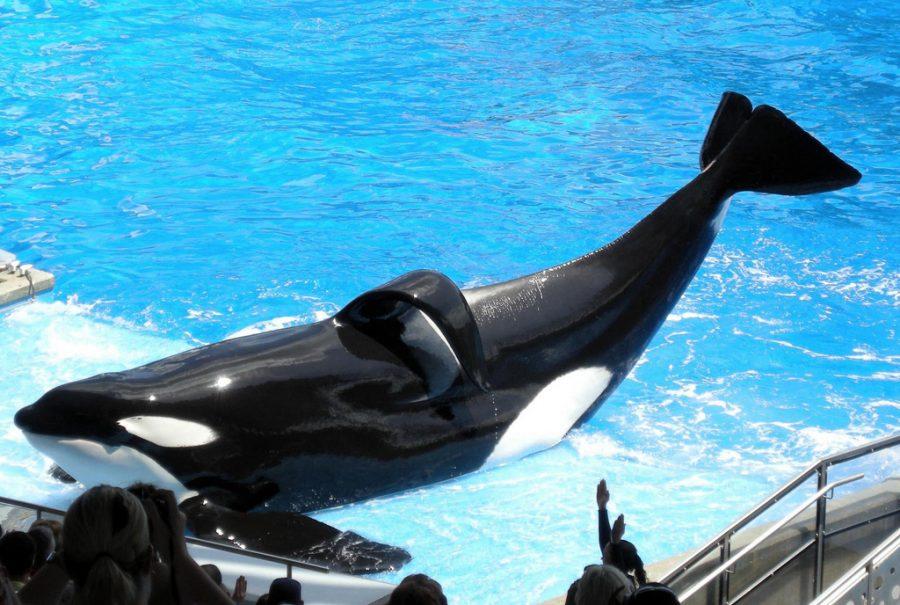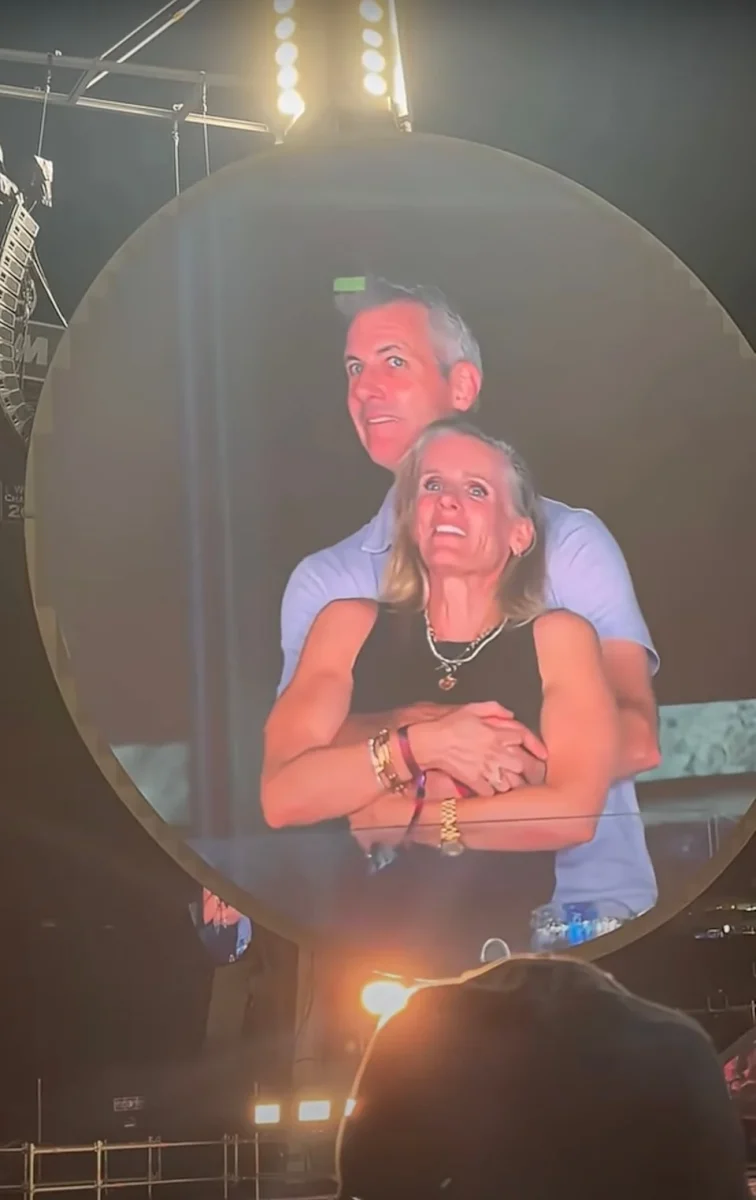The other side of Sea World
Performing a trick to an Orlando crowd, Tilikum entertains many. His collapsed dorsal fin shows the built up stress that he experienced due to captivity.
March 26, 2017
Sea World is a nationwide attraction that has been around since 1959. They are known for their vast collection of aquatic animals on display for people to experience up-close. It is practically the staple of almost every child’s memories. Sophomore Parker Moore attended the park when she was younger: “I loved watching the whales perform tricks and being splashed by the water.” Although it has brought years of joy to many individuals, it is a different story for the animals.
For years, PETA has advocated against Sea World. They argue that these animals are not meant for captivity and suffer abuse. PETA is not the only group that has spoken out against the park; former Sea World animal trainers have come forward to share what really goes on at Sea World. The animals are confined to tanks that are far too small and are often left in isolation or are placed with incompatible tank mates. The animals are drugged to manage stress-induced aggressive behavior and to relieve the repetitiveness of swimming around in circles. Animals kept at Sea World die prematurely of stress and other illnesses that come from captivity.
Tilikum is the most famous example of the dark side of Sea World. Tilikum was captured from the ocean in November of 1983, at 2 years of age. He spent 30 years in captivity and displayed the detrimental side effects of it. His violent track record started in Canada at Sealand. One of the trainers fell in the pool, and Tilikum, along with 2 other Orcas, pulled the trainer to the bottom of the pool. The trainer was unable to make it back up to the surface and drowned. After this incident, Sealand closed its doors and sold Tilikum to Sea World. The built up stress of captivity cost 2 more people their lives: Daniel P. Dukes in 1999 and Dawn Brancheau in 2010. After the death of Dawn, Tilikum was kept in isolation for 1 year before returning to performing. On January 6, 2017, Tilikum passed away at 33 years old; this is about one third of the expected lifespan of a wild orca. For more information about Tilikum, there was a documentary created called Blackfish.
In December of 2016, the park announced the layoff of over 320 positions within the company due to declining ticket sales and attendance at the parks. In 2017, the park also announced it ending of breeding killer whales. Plans have also been made to end theatrical shows with the orcas. The shows will be replaced with orca encounters that will showcase the more natural side of the animals.












